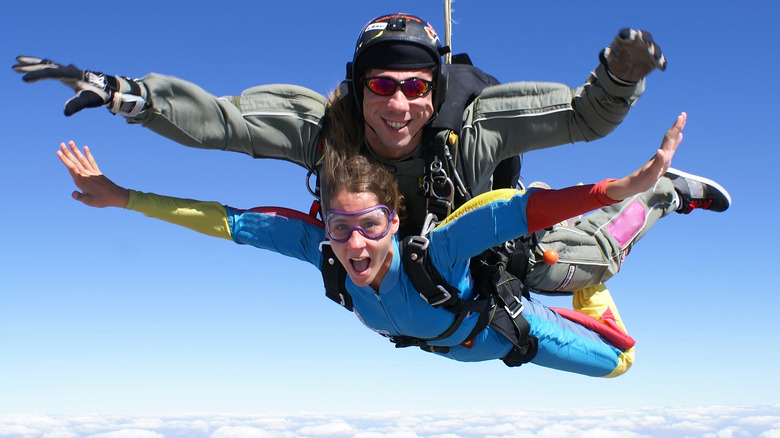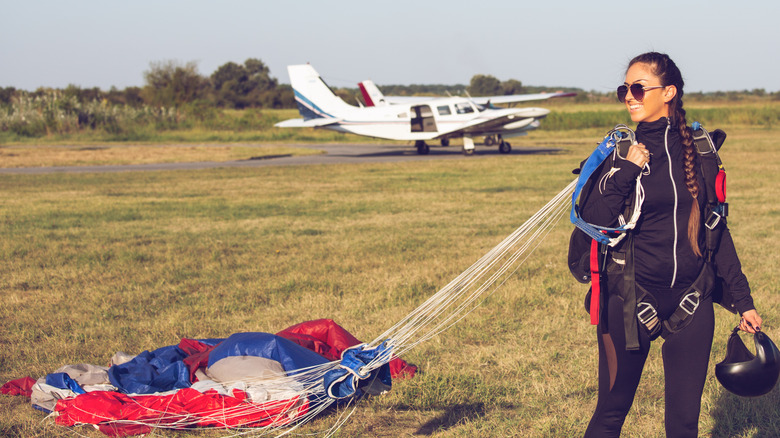What Happens To Your Body When You Skydive
What's on your bucket list? Maybe globe-trotting, writing the next great novel, or running a marathon? For many thrill-seekers, skydiving appears on the list of once-in-a-lifetime dreams. Other than that satisfying sense of accomplishment you feel after completing a worthwhile goal, what else happens to your body, both physically and mentally, when you take that ultimate plunge?
According to Skydive Newport, the average height from which a skydiver can expect to fall is about 10,000 feet, with some jumps offered at altitudes as high as 18,000 feet. As high as that sounds, however, the average time spent falling is usually no more than one minute long, after which you can expect about four to five minutes of coasting to the ground via parachute. The average jump takes place around 10,000 feet, as jumps from higher altitudes can pose some risks and are best reserved only for more experienced skydivers. Much like you can get nauseous from altitude sickness during a hike in the mountains, so can you get sick from a high-altitude jump due to the decreased oxygen levels. For skydivers, this can lead to a condition known as hypoxia, which can result in damage to vital organs in the body from the reduced intake of oxygen (via WebMD).
The short-term and long-term health benefits of skydiving
When it comes to the more immediate side effects of skydiving — like the moment your feet leave the plane — you can first expect to experience a rush of adrenaline. Experts at the Wisconsin Skydiving Center say skydivers may experience any number of adrenaline rush symptoms such as a rapid heartbeat, dilated pupils, a state of euphoria, as well as a temporary increase in muscle strength.
But the benefits don't stop there! The Wisconsin Skydiving Center goes on to say that there are positive long-term effects on the body to be gained from skydiving as well. For one, maintaining proper form while falling involves arching the back and keeping your core and rear end muscles flexed, resulting in increased muscle definition. For frequent skydivers, taking this form repeatedly can also result in improved flexibility. Additionally, for those who practice multiple jumps in a day, the weight of the skydiving gear paired with the trek from the landing site back to the take-off point for the next jump can boost endurance. Now that we know the potential short-term and long-term health benefits of skydiving, maybe it's high time we consider facing our fear of heights!


